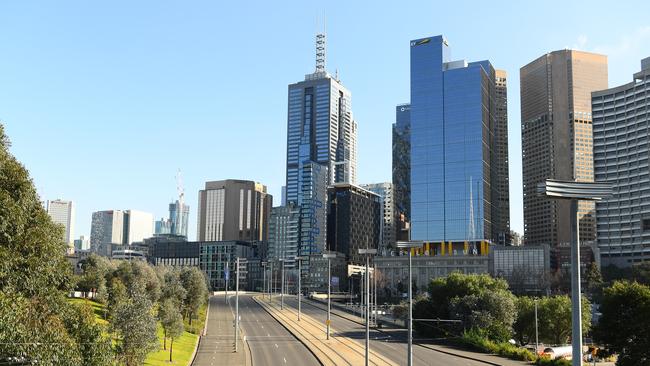
And on the edge of their seats watching the debate are owners of the big office towers like GPT who have huge stakes in the outcome of the wrangle.
As Jennifer Buckingham explained in The Weekend Australian we sentenced large numbers of Australians to a low income life without adequate reading and writing skills when we abandoned teaching via phonics and adopted the populist reading and writing theories in the 1970s. Many of the under-skilled pupils of decades ago now have great difficulty getting jobs that pay well.
The working from home debate has remarkable similarities and if we get it wrong the decision will impact professions like law, accounting and architecture for half a century. It will also affect many large corporations and the public service.
As a result of the COVID-19 changes many Australians have discovered the delights of working from home and many enterprises are planning to readjust their workplace patterns to accommodate them.
A number of professional firms have contacted me in recent weeks warning that we may create a new generation of under-educated lawyers, architects, accountants and other professions. It’s important to note that we are dealing a major change and inevitable controversy. Some of issues were canvassed by Helen Trinca in the in The Weekend Australian.
Knowledge transfer broken
I’ll describe what’s happening in architecture but exactly the same thing is occurring in the other professions. To sign off on a building project requires considerable skill and gaining that skill usually requires more than a straight university education. The up and coming architects need to talk to senior practitioners, who explain where they are going wrong. That’s how knowledge passes to the next generation.
What architects are now seeing in their firms is that the work done by juniors is emailed to remote working higher managers for approval and they make the necessary changes. But the knowledge of why the changes are required and how to learn from them simply doesn’t pass down via emailed corrections. It requires personal contact.
In the architectural business it usually takes about five or six years before a person acquires the. range of skills required to go to next level. No great harm will be done using remote work for 6 to 12 months. But if it continues any longer then we will produce a whole generation of young architects who will be unable to make it to the senior ranks because they will not have the same skills as the current generation of senior architects. The long term productivity and performance of the profession will be affected.
But already the remote working movement is gathering momentum and is enticing skilled professionals to think about residing outside capital cities where they can upgrade their accommodation without further outlays. It will be hard for senior managers to resist the trend because if they do they could lose their best people.
Educators were under similar pressure 50 years ago.
Long term damage
On the other hand research into the Fortune 500 companies by Ben Waber, the president and co-founder of Humanyze carries alarming warnings.
Humanyze was founded in 2011 out of the Massachusetts Institute of Technology Media Lab based in Boston. The group analyses how Fortune 500 companies and other large enterprises make decisions. One of their tools to understand how people interact and collaborate is studying material from movement sensors and email communications.
Humanyze and Waber have concluded that if too many workers regularly spend more than two days a week away from the office it will greatly damage the long-term dynamic of the enterprise.
Top managers who are now under pressure to change the working systems should be very careful how they do it. They need to make sure younger people can come through and skills are transferred to help in future. And of course, some middle managers advocating change realise that by freezing out the next generation they can lock in a longer and more successful career for themselves.
For some enterprises extensive working from home will be a winner. But for others it will be a disaster. Back 50 years ago the decision to wind back phonics benefited many children but it also left a huge casualty list for which we are still paying the price.
And the educators found it’s not easy to change back because there is a generation of teachers who don’t understand how to teach via phonics. The same could happen in law, architecture and accounting.







In the “working from home” debate, if Australian accounting, architecture, law and other professions follow the populist line they risk making the same mistake that the education profession made around half a century ago when education embraced a then popular theory.